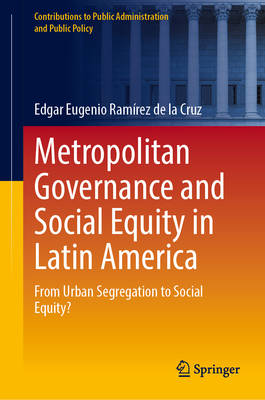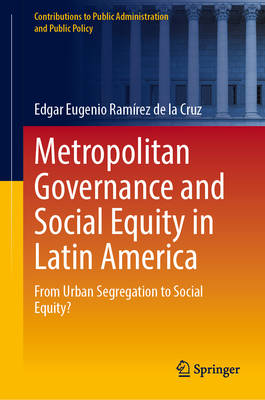
- Afhalen na 1 uur in een winkel met voorraad
- Gratis thuislevering in België vanaf € 30
- Ruim aanbod met 7 miljoen producten
- Afhalen na 1 uur in een winkel met voorraad
- Gratis thuislevering in België vanaf € 30
- Ruim aanbod met 7 miljoen producten
Metropolitan Governance and Social Equity in Latin America
From Urban Segregation to Social Equity?
Edgar Eugenio Ramírez de la Cruz
€ 213,95
+ 427 punten
Omschrijving
This book examines metropolitan governance and interjurisdictional collaboration in Latin America, focusing on the "metropolitan problem" created by fragmented jurisdictions that produce inefficiency, inequity, and weak coordination. Moving beyond traditional metropolitan governments, it highlights interjurisdictional collaboration as a middle ground, drawing on and adapting the Institutional Collective Action (ICA) framework to contexts marked by weak rule of law and informal institutions. The book proposes that collaboration choices depend on the problem's nature, actors' preferences and capacities, and institutional settings. Through case studies of Bogotá, Buenos Aires, Mexico City, Santiago, and São Paulo, it shows how inequalities, wealth disparities, institutional frameworks, and leadership shape collaboration, particularly in transportation and environmental policy. Ultimately, it advances a dynamic view of metropolitan governance as evolving institutions that balance risks, costs, and benefits, offering a new research agenda for urban governance in Latin America.
Specificaties
Betrokkenen
- Auteur(s):
- Uitgeverij:
Inhoud
- Aantal bladzijden:
- 140
- Taal:
- Engels
- Reeks:
Eigenschappen
- Productcode (EAN):
- 9783032098962
- Verschijningsdatum:
- 21/12/2025
- Uitvoering:
- Hardcover
- Formaat:
- Genaaid
- Afmetingen:
- 155 mm x 235 mm

Alleen bij Standaard Boekhandel
+ 427 punten op je klantenkaart van Standaard Boekhandel
Beoordelingen
We publiceren alleen reviews die voldoen aan de voorwaarden voor reviews. Bekijk onze voorwaarden voor reviews.









